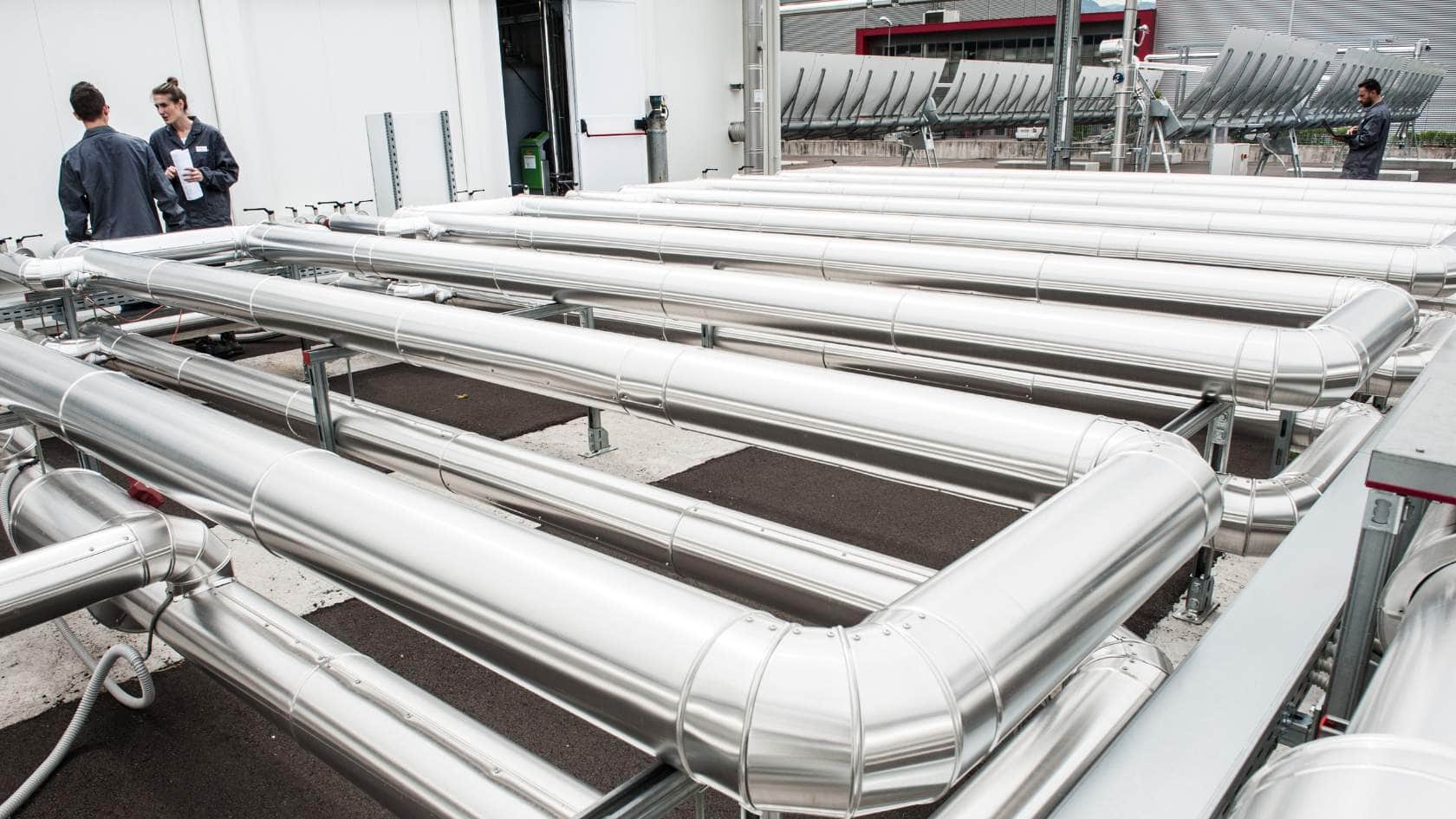Just over six months after its launch, the ALPHA project is moving forward with its first documents, the result of the partners’ work, also in dialogue with policymakers and stakeholders. While awaiting the study visit scheduled for June in Vienna (Austria), studies have been conducted on the regulatory gap hindering the adoption of 5GDHC in the Alpine space. Moreover, best practices for the decarbonization of the heating and cooling (H&C) sector and the development of fifth-generation district heating and cooling (5GDHC) networks in the participating regions have been examined, along with technological, financial, and skills-related challenges that SMEs and service providers in the H&C sector face in the Alpine regions.
D1.1.1.a Methodology regarding regulatory and administrative gaps in Alpine territories
Decarbonizing the heating and cooling (H&C) sector is crucial to reducing environmental impact and meeting climate goals. In Europe, this sector accounts for nearly half of the total energy demand and still largely depends on fossil fuels. In particular, Alpine regions, with high energy demand for heating in winter and increasing cooling needs due to rising temperatures, present unique challenges but also significant opportunities for renewable energy.
Despite this potential, the integration of renewable energy and the adoption of low-carbon solutions, such as heat pumps, remain slow in Alpine regions, partly due to insufficient policy measures. This document provides methodological guidelines to identify regulatory and administrative gaps that hinder the decarbonization process. Regulatory inefficiencies and administrative barriers are analyzed, presenting exemplary case studies of H&C/5GDHC networks in EU countries that have implemented regulatory reforms to promote the development of sustainable solutions.
The document also includes a description of the research methodology and tools for collecting territorial data, supporting the organization of an online workshop to share best practices among ALPHA project partners and other European experiences.
D1.1.1.b Analysis of the results regarding regulatory and administrative gaps in Alpine Regions
This report examines the results of the ALPHA D1.1.1a online survey, which involved project partners in identifying regulatory and administrative gaps hindering the decarbonization of the heating and cooling (H&C) sector in Alpine regions. Based on responses from regional authorities and organizations, the report highlights common challenges and structural barriers in various areas, including governance frameworks, energy integration, spatial planning, permitting processes, financial support, workforce capacity, data sharing, public awareness, and waste heat recovery.
The report provides a detailed overview of the issues encountered in each territory, followed by a comparative assessment that highlights common obstacles. Additionally, it briefly discusses interventions and best practices implemented to address these regulatory and administrative challenges, offering insights for future solutions.
By identifying transalpine patterns and policy misalignments, the report aims to support harmonized energy strategies, improvements to regulatory frameworks, and increased collaboration among Alpine regions to accelerate the decarbonization of H&C systems.
D1.1.2 Transferability and localization report
This ALPHA project report examines best practices for decarbonizing the heating and cooling (H&C) sector and developing fifth-generation district heating and cooling (5GDHC) networks in the participating regions. The document collects and analyzes regulatory, financial, and community engagement strategies emerging from the knowledge transfer workshop, offering insights for effective implementation of H&C solutions.
The report summarizes best practices presented in case studies and workshop discussions, focusing on innovative approaches such as public-private land use agreements, cooperative ownership models, streamlined permitting for renewable energy and waste heat integration, and innovative financing mechanisms. Each practice is analyzed in terms of scalability and transferability to verify its applicability in different regional contexts.
Based on these findings, the report provides practical guidance on how ALPHA project partners can adapt and implement these practices in their specific territories. The recommendations are aligned with local governance structures, economic conditions, energy infrastructure, and cultures of public engagement, ensuring that H&C decarbonization efforts are both feasible and effective.
Ultimately, the report offers ALPHA project partners a structured framework for integrating cutting-edge H&C solutions, supporting the transition of Alpine regions towards a low-carbon, resource-efficient energy future.
D1.2 Analysis of needs and business opportunities for H&C SMEs and service providers
This ALPHA project report analyzes the results of an online survey conducted as part of activity A1.2, which examined the technological, financial, and skills-related challenges faced by SMEs and service providers in the heating and cooling (H&C) sector in Alpine regions. Despite significant potential, the integration of heat pumps and renewable sources in district heating and cooling (DHC) networks is still lagging behind.
The report highlights key bottlenecks, including the lack of dedicated policy and financial measures, a shortage of training pathways for upgrading existing infrastructure, and fragmentation in the planning and implementation processes of DHC networks. Using a set of questionnaires developed by TREBNJE, ALPHA project partners documented the main difficulties SMEs and service providers face in their daily work, as well as the feasibility and impact of business models and collaboration schemes on their innovation capacity.
The results show that cash flow issues, limited financing opportunities, and the skills gap in the labor market for emerging 5GDHC-specialized professions significantly hinder SMEs’ ability to invest in advanced solutions and expand their offerings to participate in large-scale projects for the construction and expansion of low and ultra-low temperature district heating and cooling networks.
The responses received through the dedicated online questionnaire confirm these inputs, providing a concrete overview of the challenges and needs that SMEs and service providers must address to accelerate the transition to more sustainable and innovative energy solutions.


